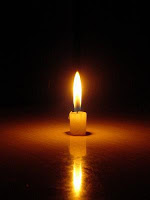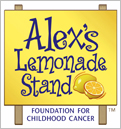
Image Credit: The New Authors’ Fellowship
It’s my weekend to work, so I come in as usual ready to plow my way thru three twelves in a row. I look for my name on the assignment sheet—it’s not there so I figure I must be on the other side. I go to the other side of the unit and find my name. But instead of the usual patient last names and room numbers it says: “IsntSheLovlei: Unit ABC, 12 hrs.” What?!? I was being floated to another unit?!? Can I tell you how I just cardiac arrested right there at the nurses’ station for a couple of seconds? Had I even been a nurse long enough for them to just throw me to the wayside like that? I was just starting to spread my little wings in the world of cancer and chemo; I was not prepared for this monkey wrench.
So with pterodactyls in my stomach (you could hardly call them butterflies), I put on my famous poker face, gathered my stuff, and quietly headed for the elevator.
Tachycardic, I arrive at my destination, give the clerk my name and tell him that I’m a reassignment from onco. “Oh, right through there…they’re expecting you.” Gulp. I get my assignment, immediately noticing that it was more patients than I’m accustomed to having (I assume my own unit’s acuity to be a bit higher). My inner panic continues to brew. Charge introduces me to everyone, gives me a little tour of the unit, and thanks me profusely for coming to help them out. The knot in my stomach begins to loosen a little. Everyone’s really nice and willing to help—no eating of the young—or of the float. I even see a familiar face, a nurse that was floated down to my unit a couple of times. She was orienting another nurse but promised to check on me. One of my patients was even on meds I was already familiar with—I don’t think I’ve ever been so happy to see cefepime in my life. I was thinking, “Hey! I know that one!”
Of course it was a different unit so I expected them to do things, well, differently. But different doesn’t necessarily have to be a bad thing. For instance, I loved how they did their vitals and assessments at 10, 2, and 6 instead of 8, 12, and 4 like most (if not all) of the other units in the hospital. Being able to come in, get change of shift report, do bedside checks, and have time (especially as a relatively new nurse who now found herself in a new environment) to sit down and synthesize some things—patient diagnosis/background, meds, plan of care, etcetera—without having to jump immediately into 8 o’ clock stuff was a dream. I’m definitely dropping that puppy into the suggestion box on my own unit.
There was also a nurse tech assigned to all of my patients so I already had a right hand (wo)man to help me out. She was only there until 11pm, then I was on my own. But by then I had built up a momentum; I knew where stuff was; the shell-shock had worn off. The clinical resource nurse and the charge nurse from my own unit even called to check on me to make sure I was okay, that my assignment was appropriate, etc. I felt better knowing that I hadn’t been totally forgotten, and a little less like I had been exiled from onco. So all in all, not a bad experience. Will I be jumping at the opportunity to do it again? Probably not. But now I can check that off the list of things I’ve done—I’ve been reassigned (*scary music*)…












